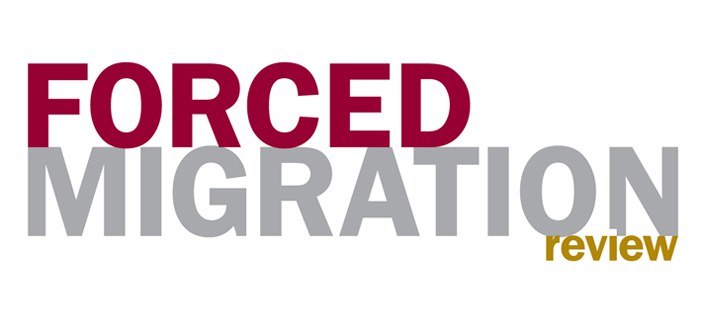Location
Forced Migration Review (FMR) is the most widely read publication on forced migration – available in English, French, Spanish and Arabic, and free of charge in print and online. It is published by the Refugee Studies Centre in the Oxford Department of International Development, University of Oxford. Through FMR, authors from around the world analyse the causes and impacts of displacement; debate policies and programmes; share research findings; reflect the lived experience of displacement; and present examples of good practice and recommendations for policy and action.
Members:
Resources
Displaying 6 - 10 of 10Defining 'forced migration’ in Burma - discussion
Most Burmese people fleeing their homes do so for a combination of reasons. The root causes for leaving, however,
determine which category’ they belong to: internally displaced persons’ (IDPs) or economic migrants’. There is
some discussion as to whether people leaving their homes due to exhaustion of livelihoods options are IDPs
according to the Guiding Principles on Internal Displacement1 – or not. Ashley South and Andrew Bosson present
their views below...
Landmines: reason for flight, obstacle to return
Burma/Myanmar has suffered
from two decades of mine
warfare by both the State Peace
and Development Council and
ethnic-based insurgents. There
are no humanitarian demining
programmes within the country.
It is no surprise that those states
in Burma/Myanmar with the most
mine pollution are the highest
IDP- and refugee-producing
states. Antipersonnel mines
planted by both government
forces and ethnic armed groups
injure and kill not only enemy
combatants but also their own
The international community’s Responsibility to Protect
In the face of continuing grave violations of human rights
by the Burmese government against its own civilians, it is
imperative that the international community start to
respond to Burma in terms of the Responsibility to Protect
(R2P) principle...
Fertility and abortion: Burmese women's health on the Thai-Burma border
In Thailand's Tak province there
are 60,520 registered migrant
workers and an estimated 150,000
unregistered migrant workers from
Burma. Fleeing the social and political
problems engulfing Burma, they are
mostly employed in farming, garment
making, domestic service, sex and
construction industries. There is also
a significant number of Burmese
living in camps. Despite Thailandâ�â¢s
developed public health system and
infrastructure, Burmese women face
language and cultural barriers and
Hard Cases: Internal Displacement in Turkey, Burma (Myanmar) and Algeria
In some countries, the internally displaced are beyond the reach of international humanitarian organizations.



